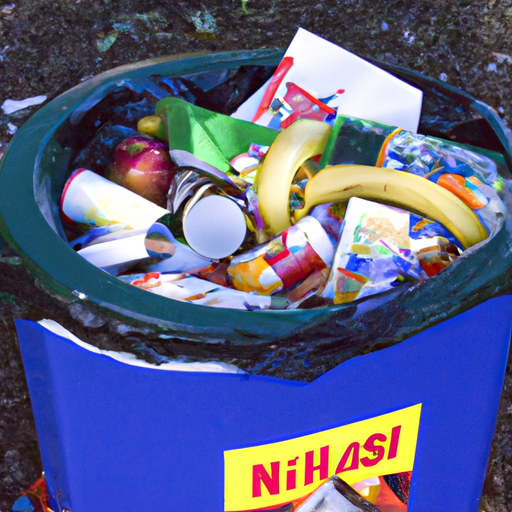Have you ever wondered about the incredible network of local public services that keep our cities running smoothly? In this article, we will take a closer look at two essential services: utilities and waste disposal. From the moment you turn on the faucet to brush your teeth in the morning, to the moment your trash is collected every week, these services play a vital role in our everyday lives. Join us as we embark on a fascinating exploration of how these services function and the impact they have on our communities.
Exploring Local Public Services: Utilities and Waste Disposal

Overview of Local Public Services
Local public services are essential for maintaining and improving the well-being of communities. These services play a crucial role in providing essential resources such as water, electricity, natural gas, and telecommunications. Additionally, waste disposal methods are implemented to ensure the proper management of waste and minimize environmental impact.
Importance of Local Public Services
Local public services are vital for various reasons. Firstly, they enhance the quality of life for individuals residing in a particular area. Access to clean water, reliable electricity, and efficient telecommunications allows for seamless daily activities and improved living conditions. Moreover, these services promote public health and safety by providing infrastructure for sanitation, emergency response, and communication. Lastly, local public services support economic growth and development by providing the necessary infrastructure and resources for businesses to thrive.

Types of Utilities
Local public services encompass various types of utilities that are essential for everyday life. These utilities include water supply, electricity, natural gas, and telecommunications.
Water Supply
Water supply is a fundamental utility that ensures access to clean and safe drinking water for residents. Sources of water can vary, with many communities relying on rivers, lakes, or underground aquifers. Once sourced, water undergoes a series of treatment processes to remove impurities and ensure its suitability for consumption. Local governments are responsible for the distribution and maintenance of water supply infrastructure, such as reservoirs, pumping stations, and pipelines. Water conservation efforts are also implemented to ensure the sustainable use of this vital resource.

Electricity
Electricity powers countless aspects of modern life, from lighting homes to operating electronic devices. Power generation occurs through various methods, including fossil fuel, nuclear, and renewable energy sources. Once generated, electricity is transported through a network of electric grids before reaching individual households and businesses. Local governments collaborate with utility companies to ensure reliable electricity supply and regulate pricing. Furthermore, efforts to promote energy conservation and the utilization of renewable energy sources are becoming increasingly important to reduce the environmental impact of electricity generation.
Natural Gas
Natural gas is a versatile and widely used energy source for heating homes, cooking, and powering appliances. It is predominantly extracted from underground reservoirs through drilling and production processes. Local governments collaborate with gas utility companies to distribute natural gas to residential, commercial, and industrial consumers. Environmental considerations, such as monitoring methane emissions and promoting renewable alternatives, are essential to mitigate the impact of natural gas extraction and utilization.

Telecommunications
Telecommunications refers to the transmission and exchange of information through various mediums such as telephone networks and the internet. This utility is crucial for modern communication, enabling individuals to connect with one another and access information instantaneously. The importance of reliable telecommunications infrastructure has become even more evident in recent times, as more aspects of life rely on digital connectivity. Local governments work closely with telecommunication providers to ensure the availability and quality of phone and internet services within their communities.
Waste Disposal Methods
Efficient waste disposal methods are essential for maintaining a clean and sustainable environment. Local governments implement various waste disposal strategies, including landfills, incineration, composting, and recycling programs.

Landfills
Landfills are the most common method of waste disposal, where waste materials are deposited and covered with soil. These sites are carefully designed and managed to prevent contamination of surrounding areas. However, the accumulation of waste in landfills poses challenges such as limited space and potential pollution of groundwater. To minimize environmental impact, landfill regulations and waste management techniques have evolved to prioritize waste reduction and recycling.
Incineration
Incineration involves the combustion of waste materials at high temperatures. This method can significantly reduce the volume of waste and generate energy through the process. However, emissions from incineration can contribute to air pollution and require strict control measures to minimize environmental and health risks. Technologies such as scrubbers and filters are employed to remove pollutants before they are released into the atmosphere.
Composting
Composting is a natural process that transforms organic waste into nutrient-rich soil amendment. This method not only reduces the amount of waste that ends up in landfills but also provides a valuable resource for agriculture and gardening. Local governments often promote composting initiatives by providing composting bins or organizing educational programs to encourage residents to compost their food waste and yard trimmings.
Recycling Programs
Recycling programs play a crucial role in diverting waste from landfills and conserving valuable resources. Local governments provide recycling bins and establish collection systems for recyclable materials. These materials, such as paper, plastics, and metals, are then processed and turned into new products. Recycling not only reduces the demand for raw materials but also helps conserve energy and reduce greenhouse gas emissions.
Environmental Impact of Waste Disposal
Waste disposal methods have a significant impact on the environment. Improper waste management can lead to pollution of air, water, and soil, endangering human health and ecosystems. Landfills produce methane, a potent greenhouse gas, contributing to climate change. Incineration can release harmful pollutants into the air if not properly regulated. The implementation of waste management plans and sustainable waste management strategies is essential to minimize these environmental risks. These strategies focus on waste reduction, recycling, and the promotion of alternative disposal methods such as composting.
In conclusion, local public services, including utilities and waste disposal, are integral to the well-being of communities. They enhance the quality of life, promote public health and safety, and support economic growth. Water supply, electricity, natural gas, and telecommunications are essential utilities that ensure access to basic resources. Waste disposal methods, such as landfills, incineration, composting, and recycling programs, enable the proper management of waste and reduce environmental impact. Local governments play a crucial role in providing and regulating these services to ensure the sustainable development and prosperity of their communities.

